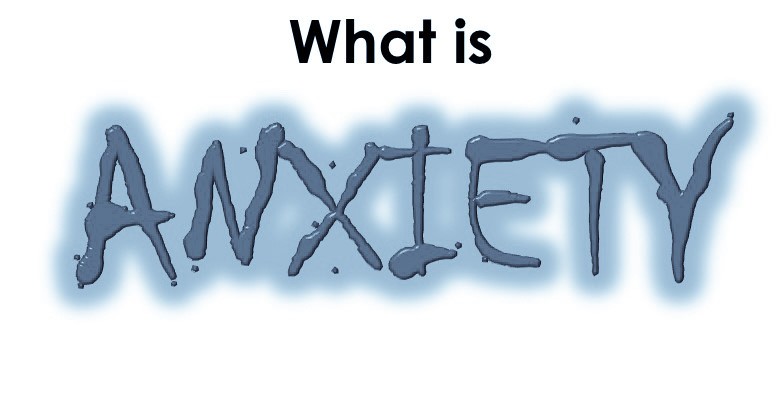News/Blog
What is Anxiety?
Your heart is racing. Your face is covered with sweat. You're feeling unsure and your hands are shaky. There is an intense feeling of impending doom. This is happening every day, for most of the day. There are no obvious stressors. What on Earth is going on?
Anxiety. It may build over time or it might hit unexpectedly and overwhelmingly. There may or may not be an identifiable trigger. In this case, the anxiety has taken over your life.
Anxiety is often situational; for some, it interferes with the quality of life. If you've ever been extremely nervous before a test, concerned while waiting for your doctor to give you test results or feeling worried before a big job interview, you know what it's like to be anxious. It's safe to say that most people have felt some form of anxiety during their tenure on the planet. But, persons experiencing anxiety that is the type that meets diagnostic criteria are experiencing something much more than a reaction to a scary moment or a situational concern. In order to be considered for an anxiety-related diagnosis, symptoms must be present for a duration of time and must meet certain criteria. At times, symptoms of anxiety might benefit from some form of professional intervention.
There are many types of anxiety-related diagnoses. General anxiety, obsessive-compulsive disorder, PTSD (post-traumatic stress disorder), social anxiety, phobias and panic attacks are all included in the anxiety family. We'll cover the various types of anxiety in blogs as we go along. For this entry, we'll stick to a more generalized anxiety.
Before you diagnosis yourself, consider this: Are you having a really stressful week at work? Are you drinking WAY too much caffeine? Is there a big life event coming up that would cause just about anyone anxiety? Do you hate it when things are out of your control… and, now things are temporarily out of your control? Step away from the energy drink! Leave official diagnoses to the professionals!
Symptoms of general anxiety might include: persistent worry, out of proportion to the stressor at hand; overthinking, feelings of impending doom; indecisiveness; inability to let go of worry; unable to relax; feeling very restless; poor concentration; changes in sleep; muscle tension; trembling or shaking; easily startled; sweating, irritability; and, bowel issues. Anxiety takes make forms. Everyone's anxiety looks "different."
For those having anxiety, therapists often suggest use of grounding skills. I like to call it the 5-4-3-2-1. Name five things aloud that you can see. Identify four things that you can feel. Be specific! Listen for three sounds. Say aloud two things you can smell. And, say one thing you can taste. Other ways of decreasing anxiety might include keeping a journal, abstaining from substances (especially stimulants), getting some exercise, doing meditation, being mindful or doing breathing exercises. If it's a situational stressor, like a final exam, you don't need a doctor or medication: you need the test to be over! If you are nervous before proposing to your partner, it's the event causing anxiety, not a need for therapy!
What should you do if you are experiencing symptoms of anxiety, especially if symptoms continue, worsen or interfere with the quality of your life? Seek professional help. While you're determining the best course of action, reassure yourself—there is help, there is support and there is hope. Having anxiety doesn't automatically mean you need to see a psychiatrist or to take medication. A few sessions with a professional might be just what the doctor ordered. Therapy doesn't have to be long term. As is true with other forms of mental illness, medication is prescribed.
Anxiety is often unavoidable, but it doesn't have to ruin your life. Seek help as needed. Hang out with supportive friends. Do what helps you feel relaxed. And, for your mental health sake, please say no to abusing substances, including caffeine.
I'm not a doctor. Although I am quite delightful and have been in the mental health field for decades, I do not have a medical degree nor am I here to diagnose anyone. It's true I am a master's level board-certified registered art therapist and a licensed clinical professional counselor, but I'm not YOUR counselor. These blogs entries do not reflect or represent the views or policies of the author's employer, Stepping Stones of Rockford, Inc. Think of this as a place to start your educational journey about mental health, for purpose of general knowledge. Heck, there are a bazillion internet sites with information on mental illness. Take what you'd like and leave the rest. I make no endorsements. Please talk directly to your medical advisor for medical advice.
--by Donna Addison, MS/ATR-BC/LCPC

